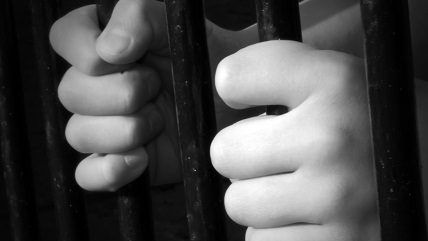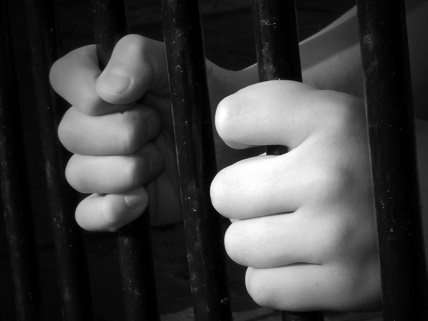From 1997 to 2007, Police Presence in Schools Increased 55%


For countless students at public schools all over the country, expulsions, arrests, and felony charges have gradually become the norm for slight or even accidental rules infractions. The Wall Street Journal ran an excellent story detailing why and how this became the case.
The problem is a familiar one for Reason readers: Paranoia over school shootings prompted authorities to crack down on perceived criminal activity—consequently, students are dealt unbelievably harsh punishments for things that shouldn't even count as crimes, like writing stories about guns or keeping pocketknives for protection.
A sobering statistic sheds light on the problem: Between 1997 and 2007, the number of police officers patrolling schools increased by 55 percent, according to The Journal. Criminologist James Alan Fox notes that schools dove head-first down a slippery slope:
In recent decades, a new philosophy in law enforcement had been applied to schools. It was "deal with the small stuff so they won't go to the big stuff, and also it sent a strong message of deterrence," said James Alan Fox, the Lipman Professor of criminology at Boston's Northeastern University.
The zero-tolerance approach started as part of the 1994 Gun-Free Schools Act, Mr. Fox said, but it expanded to other weapons, then to drug contraband and "finally into ordinary violations of school rules, disrespect, skipping. It eventually became an across the board response to discipline."
It's worth mentioning that violence in schools did decline dramatically over the last two decades. I'm not certain how much of that should actually be attributed to police omnipresence, given that violence declined nationwide, not just in schools. But it would be reasonable to think some amount of policing had a positive impact on the extreme end.
That does not justify what's happening now. Today, schools are relatively safe environments for kids; there's no excuse for treating students like prisoners of war. Students are being educated in an environment of absolute non-freedom and petty authoritarianism. Administrators have all the power to ruin their lives over arbitrary enforcement of stupid rules. And the police are always on scene to turn an infraction into a criminal matter:
In Wake County, N.C., Mr. Perry was trying to avoid a water-balloon fight at school when he was taken into custody, according to a complaint filed with the Justice and Education Departments by Legal Aid of North Carolina charging that minority students are disproportionately disciplined. The Education Department is investigating discipline in the school system, a spokesman said.
The teen, his mother and the complaint all agree that authorities didn't identify any criminal activity until Mr. Perry volunteered he had a small pocketknife he had used to carve a tree. "I didn't even know I had a knife. I just threw on my pants that day," he said.
The knife led to a weapons charge and a suspension. The charge was dropped, according to his mother, Lynn Perry. The suspension and time spent at court hearings left him short of the classes he needed to graduate, Ms. Perry said. Now she worries whether he can get into college. "It's been a complete nightmare, and we can't afford to get this stuff expunged," she said.
Not so long ago, it would have been considered perfectly normal, even appropriate, for a teenage boy to carry his pocketknife with him. Now it's a criminal offense that can completely derail a young person's future.
If there is a silverlining to any of this, it's that absurd zero tolerance stories are increasingly turning people against overcriminalization, and a growing coalition of parents, experts, and lawmakers want to roll back the policies.
I recently discussed zero tolerance policies with Cam and Co on NRA News. Watch that interview here.


Show Comments (15)